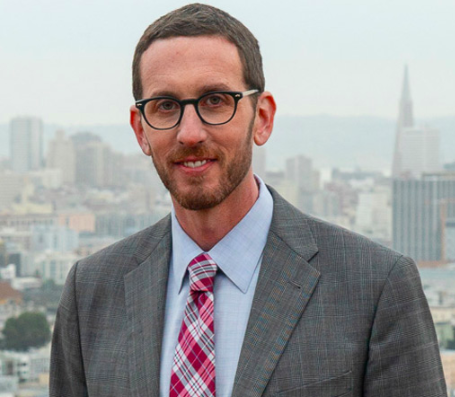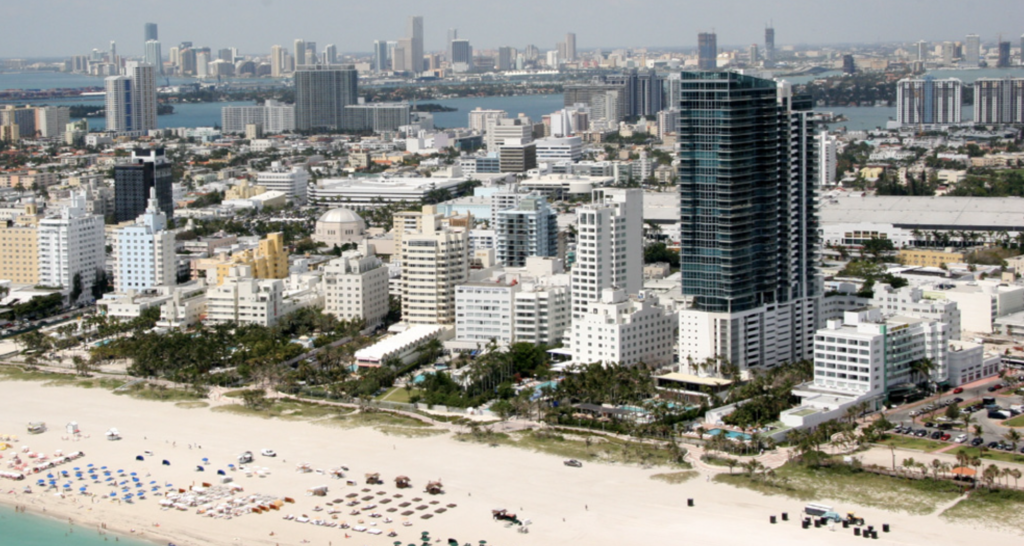State Sen. Scott Wiener, in a move that makes very little policy sense, is trying to exempt San Francisco’s oceanfront areas from the jurisdiction of the California Coastal Commission.
On the surface, it’s a solution in search of a problem: The commission’s oversight powers are very limited, and only cover a tiny sliver of developable land on the Western edge of the city.

In the 51 years since the voters approved the commission, there have been only two instances when someone has appealed a development decision on the San Francisco coast—and both times, the commission denied the appeal.
The state’s Coastal Act, approved by the voters in 1972, was designed to protect sensitive areas from Miami-Beach-style development. It gives the panel, made up of 12 representatives, six of them elected officials from coastal areas and six public members, the authority to regulate development in an area that is generally about 1,000 feet from the oceanfront.
The commission typically asks cities and counties to develop their own Local Coastal Program, and as long as the commission approves it, the local agencies have full jurisdiction over land use in those areas.
But it also allows anyone to appeal a decision in coastal areas, and those appeals can take time but are rarely successful.
San Francisco’s coastal program, which you can see here, was updated in 2018, and had the full unanimous approval of the commission.
Only a very small area of developable land is covered; most of the coastal zone is either controlled by the city (Golden Gate Park, the Zoo), the federal government (Fort Funston) or is owned by the Olympic Club, which has a golf course.
So what’s the issue?
Well, the plan calls for the city to
Preserve the scale and character of existing residential neighborhoods [in the Richmond and Sunset] by setting allowable densities at the density generally prevailing in the area and regulating new development so its appearance is compatible with adjacent buildings.
That might be a problem for a proposed 50-story tower on Sloat Blvd, which is in the coastal zone.
There are good reasons for concern about coastal development, particularly when some predict that the sea level along Ocean Beach could rise by 5.5 feet this century. That, along with king tides, could lead to widespread flooding. There are houses in Daly City perched on cliffs that are eroding. Arguing for more tall, dense development a few hundred feet from the beach might not be such a smart concept.
But Wiener’s bill, SB 951, would “remove urbanized San Francisco from the Coastal Zone — while retaining coastal natural resources in the zone — and refine the role of the coastal commission in housing approvals under certain circumstances.”
In a press release, Wiener says that
The Commission should not be in the business of second-guessing — and frequently delaying or undermining — local housing decisions in urbanized areas that are not natural resources. We need local planning departments and state housing agencies to handle housing permitting.
That’s weird: Wiener has been a leader in taking housing approval authority away from local government and handing it over to the state.
“The Coastal Commission is the first pre-emption of local government land-use authority,” Sup. Aaron Peskin told me. “Wiener can’t have it both ways.”
Another odd element of the press release:
SB 951 is sponsored by the City and County of San Francisco.
“San Francisco is changing how we get housing built, and we need to remove barriers that get in the way of that important work, including at the state level,” said San Francisco Mayor London Breed. “SB 951 addresses a key issue impacting urbanized areas in coastal cities like San Francisco, while still protecting important coastal resources across the state. This is the kind of surgical, smart policy we need to expand housing opportunities while still being strong protectors of our natural environment.”
Actually, that’s not true. Only the Board of Supes, as the city’s policy-making board, can put the city on record as supporting or opposing state legislation. Peskin told me that Wiener never contacted or asked for support from the board.
In fact, Peskin has introduced a resolution opposing the bill, and already has five co-sponsors.
“This is a naked power grab,” he told me.

As I said, it’s also a strange one: Other than the giant highrise, which even the mayor doesn’t seem to support, there’s no plan to further upzone the outer Richmond or Sunset.
Unless there are real-estate developers greedily eying that coastal area for future residential towers—which would make little environmental or economic sense.
San Francisco’s oceanfront isn’t LA; it’s cold and windy and the salty Ocean breeze is tough on paint and windows. It’s also a kind of nice, cool, neighborhood, with quirky architecture and a population of people who are generally progressive and generally not rich.
Maybe that’s what Wiener and his allies want to change.






